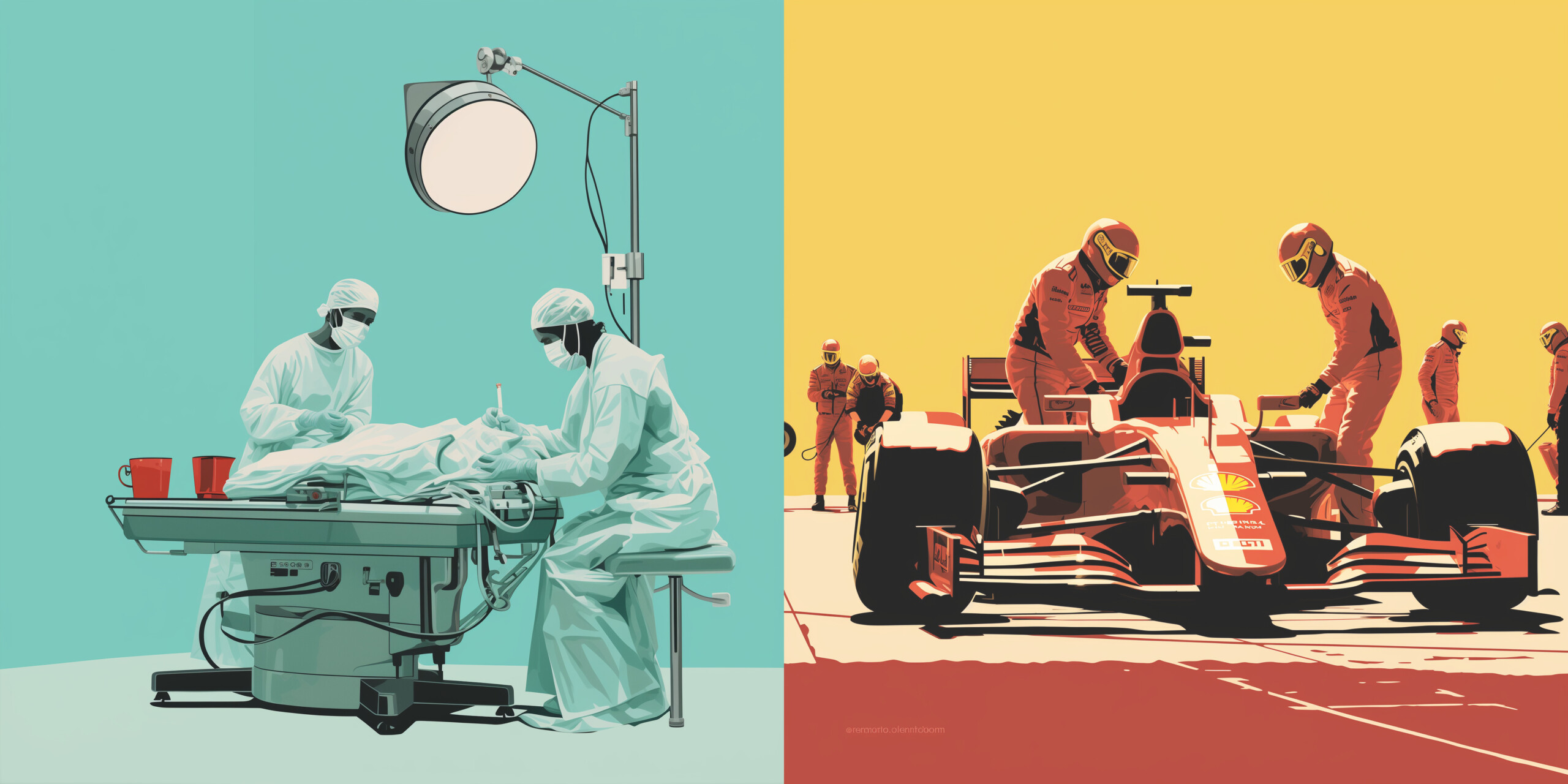Summary: A London hospital, drawing inspiration from Formula One pit stops, has dramatically reduced procedure times, processing patients simultaneously in parallel operating theaters. Using this approach, surgeons are now performing an entire week’s worth of operations in a single day, showcasing the potential for innovation to revolutionize medical systems.
The Times reported in December that a London hospital reduced the time to perform a variety of procedures by 75 percent to 95 percent. Its inspiration? Formula One pit stops. Patients are processed in parallel in high-intensity theaters rather than one after another. The article reports that “under the innovative model, two operating theatres run side by side and as soon as one procedure is finished the next patient is already under anaesthetic and ready to be wheeled in.”
According to the article, Kariem El-Boghdadly, the consultant anesthetist who designed the program with his colleague Imran Ahmad, noted, “We delete any downtime. We get rid of any time that the operating theatre does not have a patient in it being operated on.”
Since 1990, Formula One pit stops have gotten five times faster, declining 80 percent from 8.95 seconds to 1.78 seconds. Pit stops are getting 5 percent faster every year on a compound basis.
The Times article noted that:
- Surgeons at the hospital are “performing an entire week’s operations in a single day.”
- The time spent sterilizing the operating theater went from 40 minutes to less than 2 minutes.
- “The surgical team got through 21 operations on 20 patients and finished by lunchtime. Normally they would do six such procedures and be working all day.”
- Surgeons operated on “three months’ worth of breast cancer patients in five days.”
- Surgeons performed a week’s worth of robotic-assisted prostatectomies in one day.
- Surgeons performed 12 knee replacements in a day when normally it was three or four.
Productivity gains range from 300 percent to 1,900 percent. Even socialized medical systems can enjoy dramatic productive gains if people are free to innovate.
This article was published at Gale Winds on 1/4/2024.

